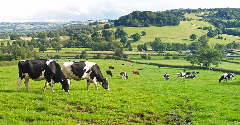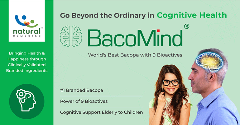News
Study: eating organic reduces pesticide exposure
11 Feb 2015A new study published in Environmental Health Perspectives is among the first to predict a person’s pesticide exposure based on information about their usual diet. The study was led by Cynthia Curl, an assistant professor in Boise State University’s School of Allied Health Sciences. She recently joined Boise State from the University of Washington. Curl and […]

 A new study published in Environmental Health Perspectives is among the first to predict a person’s pesticide exposure based on information about their usual diet.
A new study published in Environmental Health Perspectives is among the first to predict a person’s pesticide exposure based on information about their usual diet.
The study was led by Cynthia Curl, an assistant professor in Boise State University’s School of Allied Health Sciences. She recently joined Boise State from the University of Washington.
Curl and her colleagues analyzed the dietary exposure of nearly 4,500 people from six U.S. cities to organophosphates (OPs), the most common insecticides used on conventionally grown produce in the United States. OP pesticides are linked to a number of detrimental health effects, particularly among agricultural workers who are regularly exposed to the chemicals.
Results showed that among individuals eating similar amounts of fruits and vegetables, those who reported eating organic produce had significantly lower OP pesticide exposures than those consuming conventionally grown produce. In addition, consuming those conventionally grown foods typically treated with more of these pesticides during production, including apples, nectarines and peaches, was associated with significantly higher levels of exposure.
“For most Americans, diet is the primary source of OP pesticide exposure,” said Curl “The study suggests that by eating organically grown versions of those foods highest in pesticide residues, we can make a measurable difference in the levels of pesticides in our bodies.”
This study included dietary data collected from participants in the Multi-Ethnic Study of Atherosclerosis, a large, multi-institutional project funded by the National Heart, Lung and Blood Institute that is investigating factors that influence the onset of cardiovascular disease.
The researchers were able to predict each participant’s exposure to OP pesticides based on the amount and type of produce each participant typically ate and the U.S. Department of Agriculture’s measurements of pesticide residue levels on those foods. The researchers then compared these predictions to pesticide metabolite levels measured in urine samples from a subset of 720 of these people.
While Curl’s study is not the first to link organic produce with reduced pesticide exposure, the method she used may have significant implications for future research. By combining self-reported information on typical food consumption with USDA measurements, researchers will be able to conduct research on the relationship between dietary pesticide exposure and health outcomes in bigger populations, without needing to measure urinary metabolites.
“If we can predict pesticide exposure using dietary questionnaire data, then we may be able to understand the potential health effects of dietary exposure to pesticides without having to collect biological samples from people,” Curl said. “That will allow research on organic food to be both less expensive and less invasive.”
“The next step is to use these exposure predictions to examine the relationship between dietary exposure to pesticides and health outcomes, including neurological and cognitive endpoints. We’ll be able to do that in this same population of nearly 4,500 people,” she said.
One way people can reduce their pesticide exposure, said Curl, is to eat organic versions of those foods that are listed on the Environmental Working Group’s “Dirty Dozen” list, which ranks fruits and vegetables according to pesticide residue level.
Related news

Has ‘clean’ had its day?
22 Dec 2025
Wielding clean-label positioning and fortification as marketing levers is a dangerous strategy, and brands would be better off explaining the hows and whys of the ingredients in their products, say experts.
Read more
Celebrating the winners of the Fi Europe Innovation Awards 2025
3 Dec 2025
Food industry stakeholders celebrated as the winners of the Fi Europe Innovation Awards were announced at a ceremony in Paris.
Read more
Alternative protein startups pivot to B2B ingredients amid funding shift
27 Nov 2025
Alt protein startups are pivoting from consumer meat analogues to high-value B2B ingredients, driven by stronger investor interest, better margins, and clearer commercial pathways.
Read more
Walmart Marketplace’s record growth prompts search for UK sellers
26 Sep 2025
Walmart’s third-party e-commerce platform, Marketplace, has witnessed extraordinary growth – but a need for more product diversity has prompted the retailer to recruit UK sellers.
Read more
The winners of Vitafoods Europe Startup Challenge 2025 revealed
29 May 2025
Four startups – Yomio Drops, PFx Biotech, Revobiom, and Favamole – took top prizes at this year’s Vitafoods Europe Startup Challenge awards.
Read more
East takes on West in the fight for future food flavours
30 Apr 2025
Asian and South American flavours are now key components on global menus, driven by a growing global appetite for culinary mashups.
Read more
Food companies urged to bring ‘joy’ and urgency to healthy food mission
14 Mar 2025
For too long, businesses have treated health and sustainability as separate agendas – but there is growing evidence to show diets that benefit human health can also enhance that of the planet, say experts.
Read more
Entries open for inaugural Vitafoods Europe Innovation Awards
29 Jan 2025
Entries are open for the inaugural Vitafoods Europe Innovation Awards, celebrating the ingredients, finished products, partnerships, and initiatives redefining the nutraceutical landscape.
Read more
Paris Olympics: Food and beverage brands champion health, fun, and sustainability
5 Aug 2024
Food and beverage brands are aligning with the Paris Olympics 2024 Food Vision, which emphasises sustainability, local sourcing, and plant-based diets.
Read more
Natural Remedies: Bringing health and happiness via validated branded ingredients
18 Apr 2024
Natural Remedies is an internationally renowned botanical healthcare company committed to advancing the field through rigorous research and the development of clinically validated Branded Ingredients. Guided by our foundational principle of ‘BEING USEF...
Read more